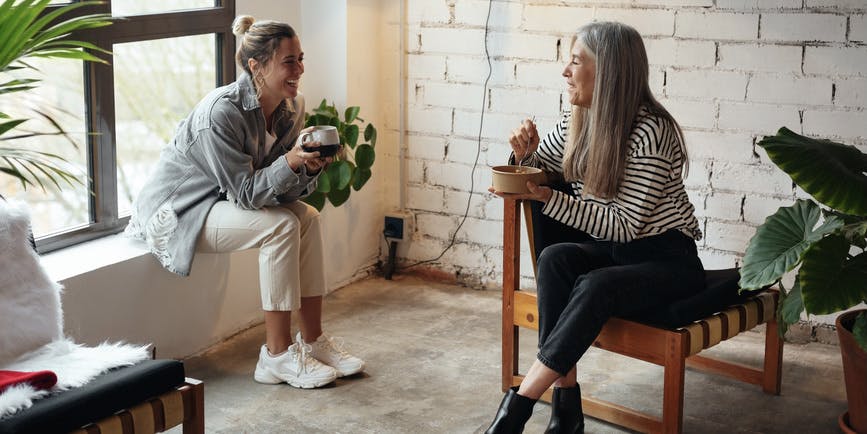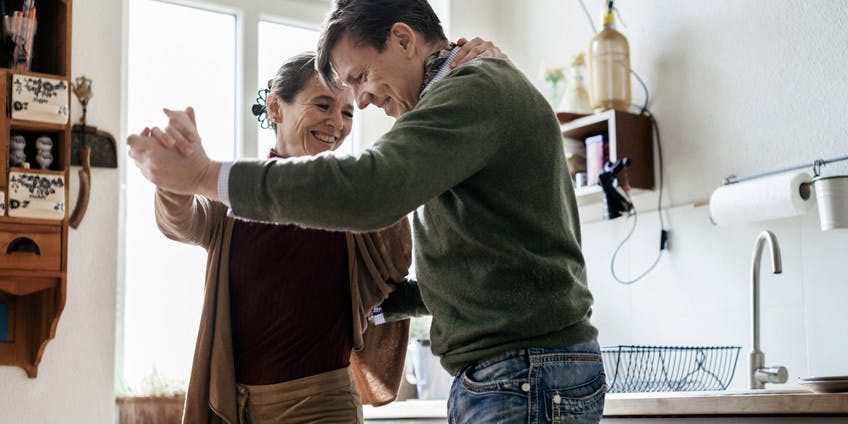Age against brain health, lactose and long-term care

Topics
Recent health-internet scuttlebutt has been markedly focused on aging. Or not aging. Or aging well.
So this week, we reveal the latest on why most of us can’t digest lactose as we get older, ways to avoid genetic dementia + the truisms of hospice care. We close with healthcare news on curbing the power of insurers, alarming syphilis rates + a new Covid-19 pill.
- The Checkup: avoid falls + lead + more
- Act Your Age: lactose + brain + hospice
- Healthcare: insurance + new pills + STIs
The Checkup
- Better boots, penguin shuffles
- more ways to avoid ice falls
- The potential risks + rewards of Musk’s new brain implant
- Sorry, but it’s not the ginger ale that’s settling your stomach
- We may know why mostly women get autoimmune diseases!
- Most Americans are eating too much protein. Are you?!
- The appendix isn’t useless! It has two fascinating purposes!
- Yes, there’s lead in your Stanley tumbler! But it’s in others, too.
- How to determine if you wanna see a doctor, NP or PA
- Can you tell how long your dog will live by their nose length?
- Eek—why you can have high cholesterol despite your diet
- Have a humidifier? Here’s why you really need to clean it
- For cozy cooking, try sweet-and-savory coconut recipes
Mooo-ve away from the dairy aisle!

Sad news for milk lovers—75% of us lose the ability to digest lactose as we get older!
We produce a lot of lactase enzymes during infancy so that we can digest breast milk. After that, we don’t need milk. So those of us with an MCM6 gene variation will produce fewer enzymes + struggle to digest milk products. Autoimmune conditions like celiac + Crohn’s disease also mess with tolerance. (Gut inflammation can inhibit bacterial growth.)
To test if you’re growing into an issue, take a break from (high-lactose) milk + ice cream and try small portions of cheese, butter + yogurt. Then build up as long as you feel good.
Get more info + tips at HuffPost.
The best way to stay sharp?

Have a family member with dementia? Or a family history of types of dementia like Alzheimer’s? A plethora of new studies show that specific activities can help the brain stay sharp and delay symptoms.
So no matter your age now, consider these recent findings.
Play an instrument. A UK study found that the complex demands of playing an instrument improve cognitive function. Playing piano and keyboard proved especially beneficial. And participants who read music specifically improved their numerical memory.
Move your body. Brain scans of 10,000+ healthy people 18-97 show that those who do at least 25 minutes of moderate (not vigorous) exercise every week have larger brains than those who move less! Areas needed for thinking + memory show the most improvement!
Speak two languages. Being bilingual + regularly speaking two languages may boost cognitive function + delay dementia symptoms by five years! These results were not shown for those who learn a language later in life. Nor for those who rarely speak two languages. But if you’re already bilingual or have decades of life ahead, try to speak two languages full-time for the most impactful results.
Go Mediterranean. Those who eat many foods high up on the MIND diet are at 50% lower risk for Alzheimer’s! Why? The fiber-rich foods support heart health, which then boosts brain health + cognitive function.\ \ Hang with friends. Lonely people are at higher risk for cognitive decline + dementia. Our brain needs stimulation, and the unpredictability + social support we get from others keep our brains working.
What is hospice care, really?

The American Academy of Family Physicians wants us to know hospice care doesn’t always mark the end of the road. Yes, it was initially set up to care for people living with terminal cancer. But now, hospice teams also serve those with debilitating conditions who are not terminally ill and have years left to live.
Other myths to dispel? Young people can get hospice care, too. Once you start, you can stop. And you don’t have to wait for a physician to bring it up: Hospice care teams can help alleviate pain + other symptoms, improving comfort and quality of life. So don’t be afraid to start the conversation.
For more information about how hospice services can support general healthcare management, learn more at NPR.
Healthcare 411
‘Make money by denying care’: new US rules aim to curb use of approval by private health insurances (NPR). The Biden Administration aims to reduce insurers’ power to deny care by refusing prior authorizations. Starting in 2026, insurers will have to make decisions within 72 hours, detail denial reasons + report them in public health data. Read the article to learn more about which insurers will be affected + how patients are currently fighting back.
Potent new pill provides COVID relief for the masses (Nature). In clinical trials, a combination of Simnotrelvir and Ritonavir sped recovery by 1.5 days in patients with mild or moderate cases. It also immediately calmed symptoms. Participants averaged 35 years old + only half had a preexisting condition. So young + healthy people might soon be able to access treatment.
Until then, eligible people can still get a same-day Paxlovid prescription through Dr. B’s affordable online healthcare services. Start a $15 Covid-19 consultation today.
Syphilis cases rise to their highest levels since the 1950s, CDC says (NPR). Syphilis cases rose almost 80% from 2018-2022 across all age groups, including newborns. (Rates for babies grew at an especially high level of 900%!) Substance abuse, decreased condom use + fewer screening services all contribute to the rise. (Many STIs don’t cause early symptoms, so get those scans!)
Topics
Sign up for the free Dr. B newsletter for a weekly report on the latest in healthcare + research-based advice for staying healthy and mentally well.